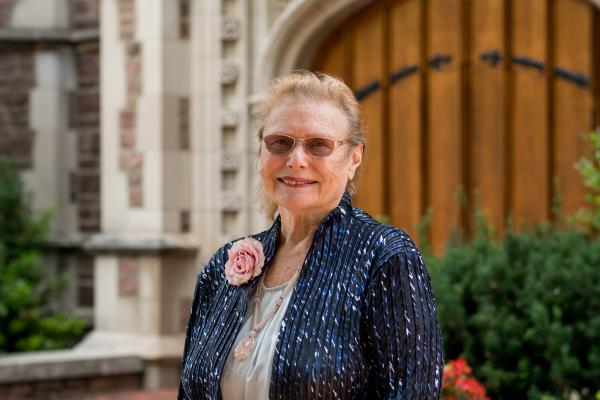Professor Elvin-Lewis is a world authority on the use of plants for promoting oral health and how these may be evolved into safe and efficacious dental products.
The globalization of herbalism and its widespread use as a part of integrative medicine in developed countries has stimulated the need to understand the therapeutic value and safety parameters of medicinal plants and dietary supplements. Generally, when traditional remedies are compounded and prescribed appropriately, within the parameters of expected value, their safety and efficacy far outweighs the risks, and most untoward reactions are mild and are tolerated as a consequence of use. Many medicinal plants have already provided the pharmaceutical industry with valuable compounds, and others continue to be valued by those that practice phytotherapy or that are available in "dietary supplements". However it is important to realize that oversight of worldwide regulatory mechanisms, including those in the U.S., are at present inadequate to guard against untoward reactions that might arise. These negative events can usually be traced to entrepreneurs or inexperienced practitioners adulterating or changing well- known formulations or creating products, which use botanicals in non-traditional ways. In this regard the dietary supplement industry is particularly prone to creating a wide range of novel and untested botanical remedies and promoting them to self-medicating public. The clinical outcome can be particularly problematical if these are used in combination with certain pharmaceutical agents. It is for these reasons that research in this area is so fascinating and challenging.
Understanding how traditional knowledge and empirical selection has served to identify plants with potential therapeutic value continues to be a major research focus. This is based on appreciation of how to optimize the value of medical ethnobotanical data by using suitable bioreactivity assays to specifically "targeted" disease entities, identifying favored taxa by an epidemiological technique called "ethnomedical focusing", and utilizing chemical as well as ethnobotanical and bioreactivity dereplications to evaluate traditional pharmacopeias and new innovative phytotherapies alike. Conceptual similarities in phytotherapies occur worldwide, primarily because related plants are likely to possess common bioreactive compounds. Similarly, allied infectious agents are also likely to share sensitivities to related compounds. Called phylogenetic amplification, these methods and that of targeting and ethnomedical focusing have been invaluable in identifying new sources of compounds, and new target diseases from medicinal plants used in Africa, India and the Amazon. Examples of discoveries made in my laboratory and that of my collaborator, Dr. Walter Lewis, have included studies on novel stimulating beverages; the prevention of tooth decay; tooth removal; the promotion of parturition; the treatment of skin infections, malaria, hepatitis B and delta hepatitis; and the significant enhancement of wound healing.



